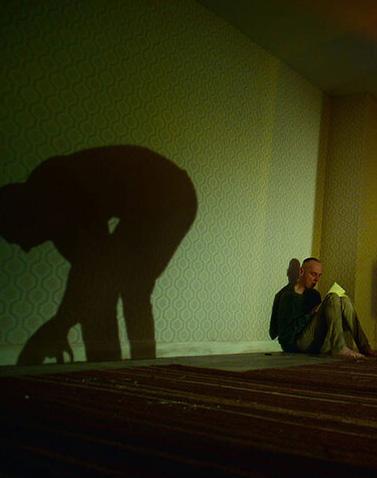
2 minute read
Representation Done Right: The Boys in the Band
Representation
I invented a new drinking game, take a shot every time someone says; “Katie, you’ve got to watch Heartstopper (Euros Lynn, 2022-)”. I don’t drink when I’m told this, usually because I’m recommended Heartstopper with such sweet intentions it makes my teeth ache. So, instead I tell them I’ve already watched it, and I didn’t like it. It just didn’t feel real. It’s easy to understand why it’s often recommended, in a sea of queer films such as Moonlight (Barry Jenkins, 2016) and Brokeback Mountain (Ang Lee, 2006), where being gay is a death sentence, Heartstopper would seem like a welcome relief. But it isn’t, in being so desperate to show a positive gay experience, it creates a fantasy, and a butt-clenchingly humiliating fantasy. Novelist Brandon Taylor summed up the current state of gay media when he wrote that the fight for LGBT fiction is between “the mean internet homosexual socialists and the tenderqueer Heartstopper Tumblr goblins”. It seemed like gay media was trying to prove something; either that ‘we definitely don’t hate ourselves’, ‘we’re just like you normal people, isn’t two boys kissing so cute?’, or ‘look how hard it is to be gay, isn’t that so sad?’. It seemed impossible to find a gay movie, that actually seems to be made for gay people. And then I found it. The Boys in The Band (William Friedkin, 1970) follows a group of gay men at a birthday party. As the night goes on and the guests get drunker, tensions rise, and they are forced to play an all-too-revealing party game, that seems to be ripped straight out of your secondary school bully’s play-book. Growing up gay, I turned to movies hoping to see someone like myself. But instead, I saw these bluntly drawn caricatures, filled with pride and self-love, who had to go upup against cartoonish bigots. Nothing about it felt real. I had known I didn’t belong with straight people, and these model-citizens and martyrs were making it very clear I didn’t
Advertisement
Done Right.
The Boys in the Band

belong with the gays either. And then I watched The Boys in the Band, with its cast of characters that vary from serial cheaters and vicious bullies to loving boyfriends and accepting friends. Their complexity was a breath of fresh air. These characters were defined by a lot more than their sexuality. But what stood out to me the most was how this movie has nothing to prove. It gives homosexuals something that seemed like a luxury only afforded to straight people; a film with only one thing on its agenda – messy, heartfelt, accurate representation. The Boys in the Band was the first time I knew someone else understood how I felt. In the search for ‘good’ representation, accuracy is often lost. When a film tries to prove something, it loses its truth and becomes a PSA. A film has nothing to prove, its only duty is to show us something - something funny, sad, heartfelt, scary, and most importantly something true. That’s what makes The Boys in the Band so great. The only thing it was trying to prove is; through all your mixed feelings you’re not alone and you never will be.
Katie McKenna






